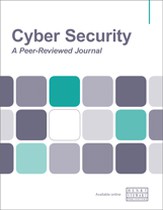Identifying cyber security risks in Spanish airports
Abstract
Spanish airports are exposed to a series of threats associated with the massive use of information and communications systems, which support the vast majority of their business processes. This study focused on cyberattacks that may occur from malicious actions in the future, as the incorporation of smart applications in airports introduces new vulnerabilities. With the motive to increase cyber security awareness to all airports’ stakeholders, we have tried to expose in a simple and understandable way the key issues of cyber security at airports. This is a continuous and mutable battle that destabilises physical and digital security, privacy and data protection, cyberattacks and national operability. Two key factors are influencing the security of the airport environment and the tourist destination: the Internet of Things (IoT), and a deficit of interoperability and regulation when communicating a vulnerability. There are no 100 per cent safe spaces: the risks exist and we have to prevent them. The objective of this research project is to study the dangers and vulnerabilities of Spanish airports, to classify which enemies we face, in order to increase the levels of security and make better decisions in an environment where the control of logistics and passenger safety are vital.
The full article is available to subscribers to the journal.
Author's Biography
Lázaro Florido-Benítez is a lecturer (Marketing and Market Research Department) at the University of Málaga, teaching tourism and marketing. His research covers education, tourism, mobile marketing, including airline and airport demand forecasting, airport productivity and efficiency, and future tourism activities and trends and their relationship with the air transport industry.
